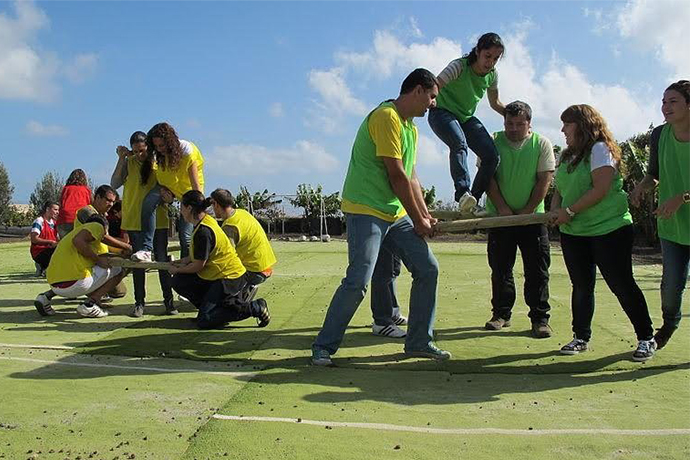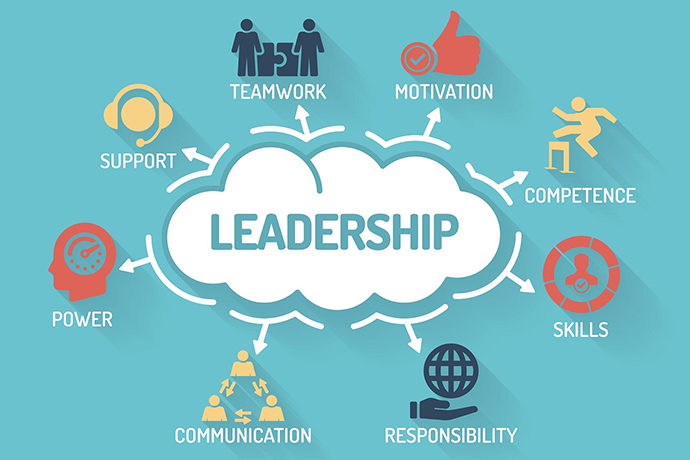 SPEAKERS
SPEAKERS
 TOPICS
TOPICS
Leadership in today's dynamic business world goes beyond traditional roles. Explore the blog to understand why investing in team-building activities is crucial.

In the dynamic landscape of today's business world, the role of leadership extends beyond traditional responsibilities. A crucial aspect of effective leadership involves recognizing the significance of team-building activities.
These activities go beyond the realm of simple camaraderie and hold the potential to significantly impact organizational success. In this blog, we delve into the reasons why leaders should actively invest in team-building activities and explore the manifold benefits they bring to the table.
Team building activities offer a plethora of advantages, starting with the improvement of communication within the team. When team members engage in activities outside the regular work setting, they are more likely to express themselves freely, fostering a culture of transparent communication.
Enhanced collaboration and cooperation are other notable outcomes of well-executed team-building initiatives. When individuals come together in a non-threatening environment, they learn to appreciate each other's strengths and weaknesses, leading to a more collaborative work environment.
Team building activities contribute to increased employee morale. As individuals bond over shared experiences, a sense of camaraderie and unity develops, creating a positive workplace atmosphere. This boost in morale can have a direct impact on employee engagement and satisfaction.
The foundation of any successful team is trust and team-building activities play a pivotal role in building and reinforcing this trust. Open communication is a cornerstone of trust within a team. By encouraging team members to communicate openly, leaders lay the groundwork for a trusting relationship.
Furthermore, team-building activities provide opportunities for team members to understand each other on a personal level. When individuals share personal experiences or work together to overcome challenges, they develop a deeper understanding of their colleagues, strengthening interpersonal bonds.
In the workplace, trust is not only about understanding each other but also about relying on each other. Team building activities help instill a sense of reliability among team members, creating a foundation of trust that extends to the professional realm.

A well-functioning team is often synonymous with high productivity and efficiency. Team building activities contribute to this by helping team members understand their roles and responsibilities more clearly. When individuals are aware of their strengths and weaknesses and those of their teammates, work processes can be streamlined for maximum efficiency.
Team building activities contribute to the creation of a positive work environment. When employees feel comfortable and supported within their team, they are more likely to be engaged in their work. This positive atmosphere can significantly boost productivity and contribute to a more efficient workflow.
Creating an environment where collaboration is encouraged and appreciated is crucial for achieving high levels of productivity. Team building activities provide a platform for team members to collaborate in a low-stakes setting, fostering a sense of camaraderie that carries over to the workplace.
In today's fast-paced business environment, adaptability is a key trait for success. Team building activities can help nurture a culture of adaptability within a team. When individuals are exposed to new and challenging situations in a controlled setting, they develop the skills needed to adapt to change in the workplace.
Effective problem-solving is another skill that is honed through team-building activities. Many team-building exercises involve overcoming obstacles or finding creative solutions to challenges. These experiences translate into improved problem-solving skills that can be applied in the day-to-day work environment.
Furthermore, team-building activities encourage critical thinking and decision-making skills. When faced with challenges during activities, team members are required to think on their feet and make decisions collaboratively. This translates into a team that is better equipped to handle complex situations in the workplace.

Team building activities provide an excellent platform for identifying and nurturing leadership skills within a team. As individuals take on different roles during activities, leaders can observe and identify team members who exhibit leadership qualities. This insight can be valuable for future leadership development initiatives.
Creating opportunities for leadership roles within team-building activities allows individuals to practice and develop their leadership skills in a low-pressure environment. This experiential learning can be instrumental in preparing individuals for leadership roles within the organization.
Plus, team-building activities encourage a collaborative leadership style. Leaders who actively participate in team building exercises demonstrate a willingness to work alongside their team members rather than simply overseeing from a distance. This collaborative approach fosters a positive leadership dynamic within the team.
Recognizing and valuing employee contributions is essential for employee satisfaction and retention. Team building activities provide an opportunity for leaders to acknowledge the efforts of their team members in a more informal and personal setting. This recognition contributes to a positive workplace culture that promotes employee satisfaction.
Additionally, team-building activities play a crucial role in providing a sense of belonging among employees. When individuals feel connected to their team and organization, they are more likely to stay committed and satisfied in their roles. This sense of belonging is nurtured through shared experiences during team-building activities.
Reducing employee turnover is a significant challenge for many organizations. Team building activities, by fostering a positive work environment and enhancing employee satisfaction, contribute to lower turnover rates. Employees who feel valued and connected to their team are more likely to remain with the organization in the long term.
Instilling shared values and goals is a fundamental aspect of team-building activities. When individuals come together to achieve a common objective during these activities, they develop a shared sense of purpose. This shared purpose can be translated into a positive organizational culture that aligns with the overall goals of the company.
Creating a supportive and inclusive environment is another key outcome of effective team-building activities. When team members feel supported by their colleagues and leaders, they are more likely to contribute positively to the organization. This support extends beyond the professional realm, fostering a sense of community within the workplace.
Furthermore, team-building activities contribute to the strengthening of organizational identity. When individuals feel a strong connection to their team and organization, they are more likely to embody the values and identity of the company. This alignment leads to a more cohesive and positive organizational culture.
In conclusion, leaders who invest in team-building activities are making a strategic investment in the success and longevity of their organizations. The benefits, ranging from improved communication and collaboration to increased productivity and leadership development, are far-reaching. Team building activities not only contribute to the development of individual skills but also create a positive and cohesive team dynamic.
As leaders prioritize these activities, they set the stage for a resilient and thriving organizational culture that can withstand the challenges of the dynamic business environment. In the long run, the investment in team building pays dividends in the form of engaged, satisfied, and high-performing teams.